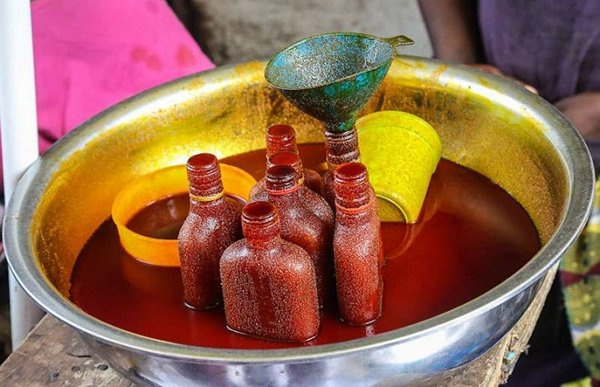An association that is into palm oil production, the Oil Palm Development Association of Ghana, has reiterated the non-existence of red local palm oil on the market as many demands for.
The Executive Secretary of the Association, Selorm Quami, who spoke on the Anopa Bofoↄ morning show said the palm oil on the market currently is produced from a hybrid seed which appears to be orange.
According to him, the seed called “Genera” was produced by Oil Palm Research Institute (OPRI) when the need arose for the country to produce oil palm on large scale for commercialization.
“Because our forefathers were not producing for commercial purposes and that trend had to change, the OPRI came up with that seed type which will generate more oil to meet the demand,” he said in Twi on the morning show.
In his submissions on the show hosted by Kofi Adoma Nwanwani, he observed that the traders adulterate the oil in order not to lose customers or the income they expect to earn.
In December 2021 for instance, the Food and Drugs Authority in collaboration with Ghana Health Service and the security agencies across the country embarked on a mission and arrested some 10 traders at Mallam Atta and Dome markets for committing an offence of “Food fraud”.
They were reported to have added Sudan IV dye to the palm oil to deepen its redness to make gains.
The situation however dates back to 2015 when it was at its peak until the FDA intervened to curb the menace.
That notwithstanding, oil palm consumption is about “350,000 metric tonnes annually” according to Selorm Quami, out of some “650,000 metric tonnes produced” within the same period.
Thus, there is a surplus of some 300,000 metric tonnes which the oil refinery companies in Ghana export.
He, therefore, urged the importers of vegetable oils and other palm oil products to engage the producers and take advantage of the excesses to feed their markets. He believes that it will be of benefit to both stakeholders.
